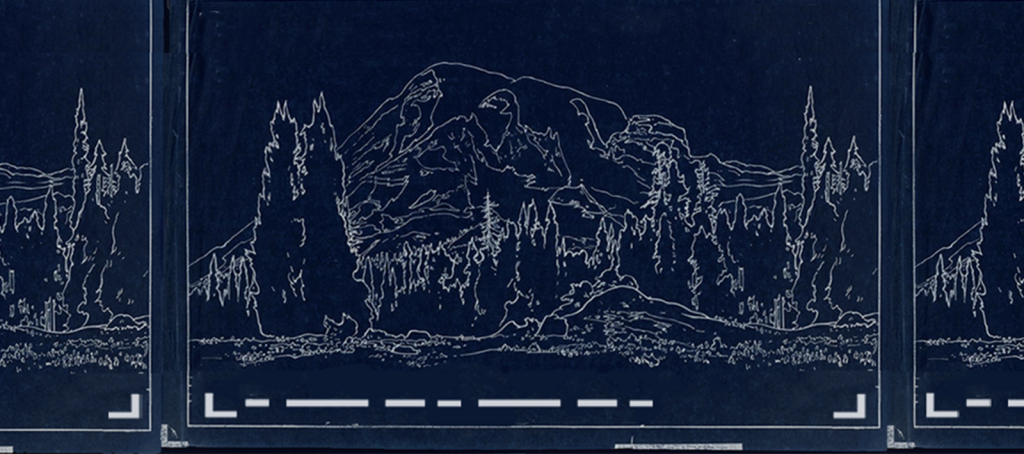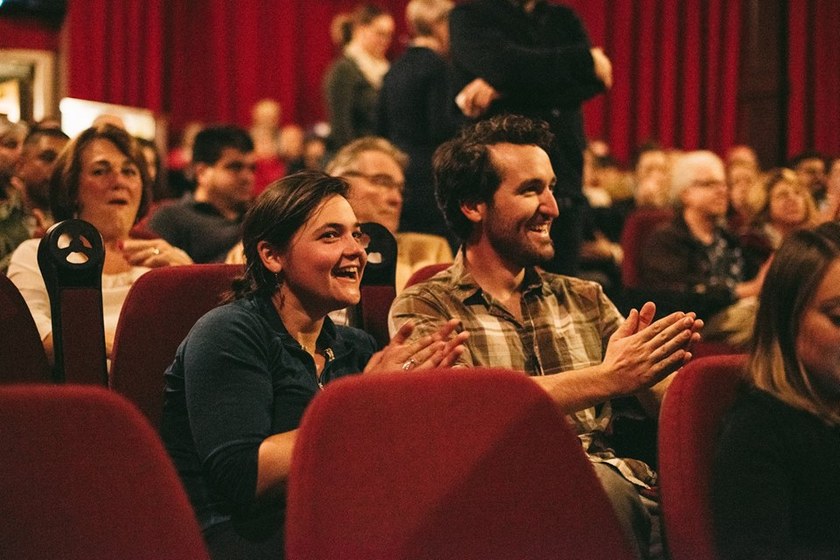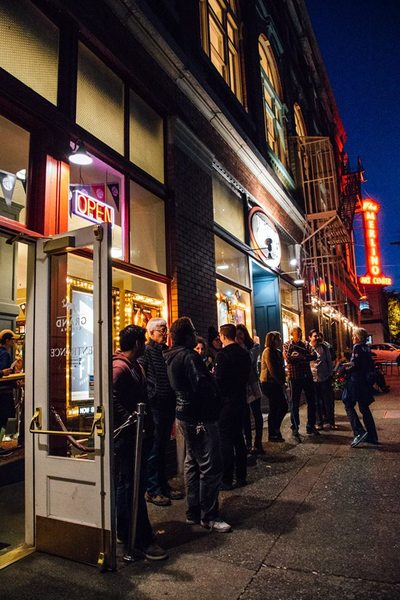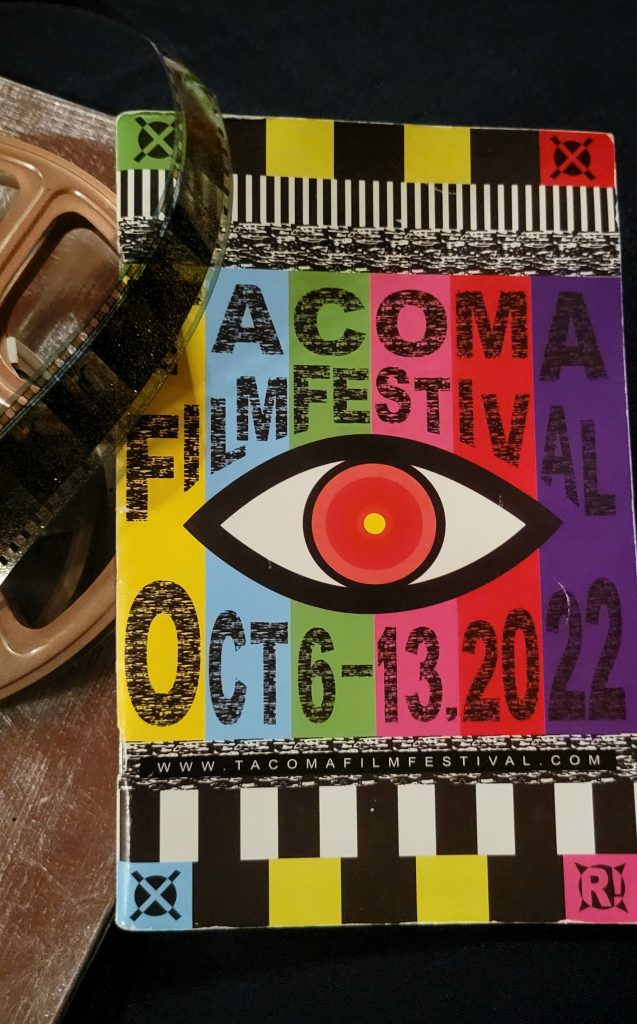Highlights of the Tacoma Film Festival: Part 2
The Tacoma Film Festival is now over, but the films and experiences shared are likely to make a lasting impact.
As the film festival continued, more exceptional films were shown. Documentaries continued to teach, highlight people and places, and engage audiences. The fourth night brought a particularly hilarious, heartwarming and creative film to the Grand Cinema.

Documentaries
“The Pez Outlaw,” directed by husband and wife duo Amy Bandlien Storkel and Bryan Storkel, is a documentary about Steve Glew, who turned Pez dispenser collecting into a lucrative and possibly illegal business. This film is not a run-of-the-mill documentary; it includes the usual interviews with those involved, but a huge part of the story is told through creative and heightened reenactments of real events. These were enhanced by the genius choice to have Glew playing himself in these scenes. These scenes are exaggerated and imaginative, perfectly capturing Glew’s charismatic personality and oddball style of storytelling.
The story itself is compelling and doesn’t lose momentum as it is full of entertaining characters and Glew’s potential to be a folk hero. This film will be in select theaters starting October 21, and will find its way to digital platforms in the future. The Grand Cinema also is giving it a full run due to its popularity.
“Outta the Muck,” directed by Bhawin Suchak and Ira Mckinley, tells the simple story of American football in a small town that values its community and follows standard documentary practices, while “Freedom from Everything,” directed by Mike Hoolbloom, explores the pitfalls of a capitalist society through mosaic and collage-like visuals. Though its storytelling techniques might not be for everyone, it succeeds in articulating the frustrations many have when it comes to an unjust society. It received an honorable mention from the festival Jury Awards for Best Feature Documentary. “The Death of My Two Fathers,” directed by Sol Guy, focused on family, honesty and reflection, and was a personal favorite, leaving most of the audience in tears by the end.

Feature Narratives
There was a refreshing variety of feature narratives for the second half of the festival, ranging from quiet drama to unconventional pieces and sci-fi. Some were audience pleasers, and some were more divisive, creating interesting dialogues between viewers.
“Unrest,” or “Unrueh,” in its original format, directed by Cyril Schäublin was a quiet film that followed the lives of watchmakers in Switzerland in the late 19th century as their town began to evolve politically. Though it is not action-packed, it is an intriguing period piece that executes the visuals quite well. “Unrest” won the Jury Award for Best Cinematography for a narrative feature.
Though the festival categorized the following as a documentary, “Dos Estaciones” is more of a feature narrative. It is a slow-burn drama that is based on real people, following a tequila factory owner and the other residents of a small town in Mexico. With solid acting and beautiful cinematography, the film manages to avoid boredom.
“The Park,” directed by Shal Ngo explores a post-apocalyptic world in which people die when they hit puberty; leading to a world inhabited only by children. While it has an interesting concept, the film doesn’t completely deliver, and isn’t entirely original with its character archetypes of tough girl and quirky girl. However, the children put in wonderful performances and there are moving moments.
A character-driven narrative feature was “Unidentified Objects,” directed by Juan Felipe Zuleta. The movie tells the story of eccentric and kind Winona who is desperate to reconnect with the aliens she claims abducted her when she was younger. Along for the ride is Peter, a bad-tempered and depressed little person who has recently suffered a great loss. As Winona and Peter set off on a wacky but emotion-filled journey, they soon learn more about each other and themselves. The film is a heartwarming story at its core due to beautiful performances from the two leads, Sarah Hay and Matthew Jeffers. While it has a dark subject matter, the film is charming and actually quite funny. “Unidentified Objects” won the Jury Award for Best Performance in a narrative feature for Matthew Jeffers.
“Robe of Gems,” directed by Natalia López Gallardo, was a controversial film for the festival. With a loose, mysterious plot and subtle acting, it never quite hit its stride with most viewers. Though it advertises a thrilling plot and possesses competent visuals, it ends up being a lackluster gritty drama that is too hard to follow.
Some films took risks that paid off. For “The Timekeepers of Eternity,” director Aristotelis Maragkos took footage from the TV miniseries “The Langoliers” and printed each frame on a piece of paper. Utilizing tearing and crumpling, this artistic choice elevated the story, the themes of the original miniseries, and provided more intrigue. It won the Jury Award for Best Late Night Film, which was well-deserved as it was an enjoyable experience for viewers.

Short Films
There was again a plentiful amount of short films. Some were strange, some were funny, and some were horrifying. The most enriching experiences generally came from the late-night blocks that showed especially creative films.
“Mantis Club,” directed by Yalian Li, flipped gender roles in a creative and campy way, and was a perfect quirky late-night audience experience. “Aidan,” directed by Donavan Wilson, explored the concept of A.I. in a meaningful way and provided beautiful imagery of Tacoma while “Death in a Box” directed by Simeon Gregory provided ample tension and satisfyingly gory scares, winning it an honorable mention Jury Award for Best PNW Late Night Film.
When it came to particularly polished shorts, “Once Upon a Time in the Wasteland,” directed by Conner Von Kuetzing, displayed fantastic acting, a funny homage to Spaghetti Westerns, and striking cinematography. On the more simple side, “Rachels Don’t Run,” directed by Joanny Causse, was an impressive piece grounded with complicated emotions and an incredible performance from its singular actor Sera Barbieri and was awarded an honorable mention from the Jury Awards for Best PNW Narrative Film.
“Know Your Place,” directed by Zia Mohajerjasbi, closed the film festival. Mohajerjasbi expertly tells the story of two boys, Robel and Fahmi, the sons of immigrants who must navigate Seattle to transport an important package that a family member in Africa is in desperate need of. The whole movie had a lovely sense of realism while being exciting, sad, funny and moving. The film focuses on the dynamics of this Eritrean family as well as the friendship between the two teenagers. The acting performances are impressive, from leads Joseph Smith (Robel) and Natty Moges (Fahmi) in particular. A newcomer to the scene, Selamawit Gebresus, stuns as Robel’s mother, bringing emotional depth and warmth. The story is compelling and highlights complex issues while painting an accurate picture of how Seattle is today.
After the film, everyone gathered in the lounge of the Grand, excitedly murmuring over their desserts. A Q&A was held with the cast and director (who appeared via Zoom from London), and it was clear the film was made with great care and expertise. That evening, “Know Your Place” was the recipient of the Jury Award for Best Screenplay (for a narrative feature) and the Audience Choice Award for Best PNW Narrative Film.
Be sure to catch the Tacoma Film Festival next time— either stop by for one film, or treat yourself to a pass to see them all! The unique experience and sense of community this event brings is worth the commitment.



